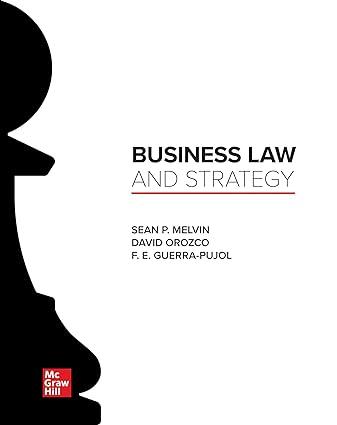In 2006, Asadi accepted GE Energys offer to serve as its Iraq Country Executive and relocated to
Question:
In 2006, Asadi accepted GE Energy’s offer to serve as its Iraq Country Executive and relocated to Amman, Jordan. At a meeting in 2010, while serving in this capacity, Iraqi officials informed Asadi of their concern that GE Energy hired a woman closely associated with a senior Iraqi official to curry favor with that official in negotiating a lucrative joint venture agreement. Asadi, concerned that this alleged conduct violated the Foreign Corrupt Practices Act, reported the issue to his supervisor and to the GE Energy ombudsperson for the region.
Shortly following these internal reports, Asadi received a “surprisingly negative”
performance review. GE Energy pressured him to step down from his role as Iraq Country Executive and accept a reduced role in the region with minimal responsibility. Asadi did not comply and, approximately one year after he made the internal reports, GE Energy fired him.
Asadi filed a lawsuit alleging that GE Energy violated Dodd-Frank’s whistleblower protection provision by terminating his employment following his internal reports of the possible violation of federal law. GE Energy filed a motion for summary judgment on the basis that Asadi’s whistleblowing did not fit the definition of a whistleblower under Dodd-Frank because the statute requires the wrongdoing to be reported to the SEC in order to be eligible for anti-retaliation protections. The trial court ruled in favor of GE Energy and dismissed Asadi’s lawsuit. On appeal, Asadi argued that the SEC’s published regulations interpreted the definition of a Dodd-Frank whistleblower broadly enough to cover Asadi.
CASE QUESTIONS
1. Who prevails and why?
2. What U.S. Supreme Court case helps you answer this question?
Step by Step Answer:

Business Law And Strategy
ISBN: 9780077614683
1st Edition
Authors: Sean Melvin, David Orozco, F E Guerra Pujol





